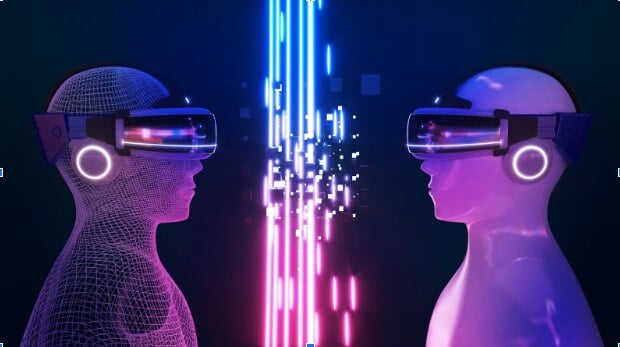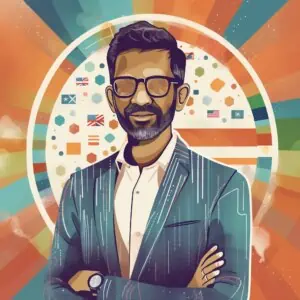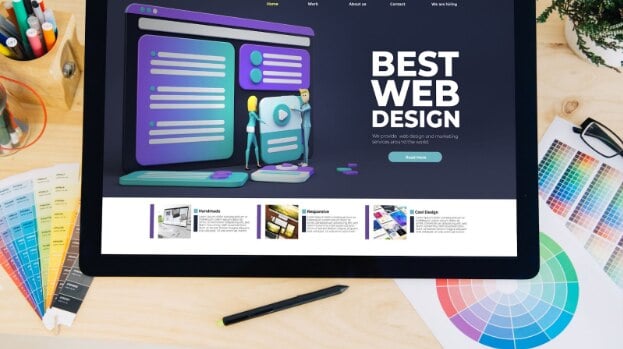As a seasoned professional and a consultant specializing in digital transformation, my experiences stretch across the spectrum of generational divides. The swiftly turning tides of technology have shaped distinctive attitudes towards digital adoption and ethics. They’ve drawn an invisible line in the sands of time, a demarcation between the digital natives—those born into an era of rampant digital development—and the digital immigrants—those for whom technology was a foreign land they had to painstakingly navigate and adapt to.
Understanding Generational Differences
My experiences have led me to believe that the generational divide in technology is an intriguing phenomenon. Digital natives, typically those born after 1980, have grown with technology woven into their lives. Their comfort in dealing with digital platforms and tools is unquestioned… a seemingly intrinsic part of their being. On the other hand, digital immigrants, who spent the formative years of their lives in a pre-digital world, have had to adapt to this new digital landscape, learning and often stumbling along the way.
These distinctive journeys have resulted in unique perspectives on technology and its role in our lives, particularly in terms of professional ethics. For example, a report published by PwC revealed that 74% of millennials—the majority of whom are digital natives—believe that technology makes it easier to rise up the corporate ladder. This contrasts sharply with the views of baby boomers, where only 54% held the same belief.
Ethical Education and Awareness
One of the most poignant issues surfacing from these differing perspectives, is the ethical use of technology. An ethical chasm can sometimes appear. With rapid advancements in digital technology—like the onset of artificial intelligence or the ubiquity of data surveillance—the gravity of tech ethics can’t be overemphasized.
I have always been a staunch advocate of widespread ethical education and awareness for all generations. In my work, I’ve found that fostering a shared understanding of ethical considerations can go a long way in aligning different generational viewpoints. A common ground in comprehending the implications of, say, data privacy or algorithmic fairness, may very well bridge this chasm.
Bridge the Knowledge Gap
Bridging this knowledge gap involves not just instruction, but dialogue, empathy, and patience. Yes, patience! The journey of understanding and mutual respect isn’t an expressway; it is a winding path that meanders through valleys of misunderstanding and mountains of preconceived notions.
Emphasize Common Values
Despite these differences, one can’t overlook the shared ethical values that pervade generations. Privacy, security, fairness, and accountability transcend the boundaries of age and experience. These common tenets of digital ethics can serve as the bedrock upon which we can build intergenerational understanding and cooperation.
Intergenerational Collaboration
So, how do we go about fostering such cooperation? The answer, as I see it, lies in collaboration. Encouraging digital natives and immigrants to work together, learn from each other, and appreciate their unique viewpoints can result in a more ethically grounded digital landscape.
Consider this: the digital immigrant, with their wealth of life experiences and understanding of pre-digital ethics, coupled with the tech-savvy digital native, adaptable and innovative. Together, they could shape a future where technology isn’t just convenient, but also conscientious. A future where a machine isn’t just smart, but also ethical.
Continuous Learning and Adaptation
In the end, one thing is certain: change is the only constant. As we continue to chart the course of our digital destiny, we must also be ready to continuously learn and adapt. A culture of openness and reflection can help address the ethical challenges that will inevitably arise, ensuring that our technology serves us, not the other way around.
Finally, I feel the need to mention the importance of recognizing generational strengths rather than dwelling on perceived weaknesses. For instance, Gen X is often perceived as being less tech-savvy than millennials. Yet, they were the first generation to grow up with PCs and thus have a unique understanding of technology’s evolution. By acknowledging such strengths, we can further bridge the generational divide in the workplace.
In Conclusion…
Navigating the technological ocean is no easy feat. It is a journey that requires us to respect the perspectives of both digital natives and immigrants, build bridges across the generational divide, and continuously adapt to changing ethical landscapes. In the end, the ability to adapt to automation and technological changes is not just about staying relevant—it’s about paving the way for a future that is not only technologically advanced but also ethically sound.
So, let us sail ahead. Together. With understanding and respect for the different generations, with shared values and a common vision, we can traverse the high seas of the digital world and chart a course towards an ethical, inclusive, and sustainable digital future. And remember, in the voyage of digital transformation, every generation has a role to play – we are all in the same boat!







